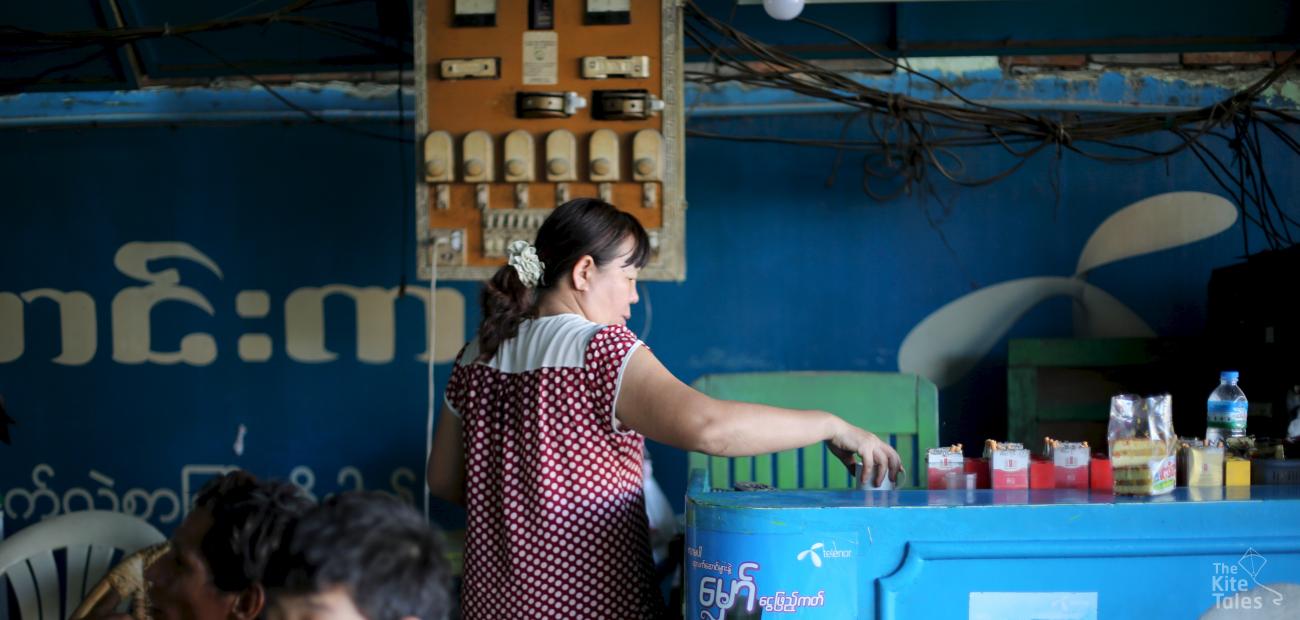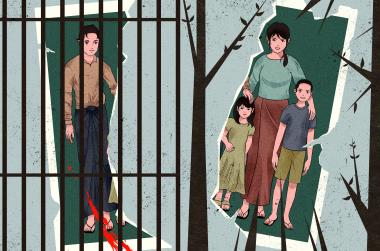This story is part of a series on children working in the teashops of Mandalay. You can also read about a boy working at the teashop and his teacher.
The morning rush is over and only a few men remain at the teashop tables, lingering over their cups and transfixed by the flamboyant Bollywood action film playing on the television screen hung imposingly at the back of the room. The movie is barely audible above the thunder of the trucks on the road outside, roaring off the grimy walls and high metal ceiling like the ocean in a seashell.
Almost everyone here is from somewhere else. The truckers at the tables and the young boys who whirl between them serving tea were all sucked into the city by the promise of regular work, leaving families and schools behind in the rural villages of their childhoods. Even the proprietor — the calm, cheerful lady at the centre of the cacophony — is an outsider trying to make it in the city.
Originally from near Lashio in Shan state, Haw* and her family came down to Mandalay 10 years ago to start a new business after falling on hard times.
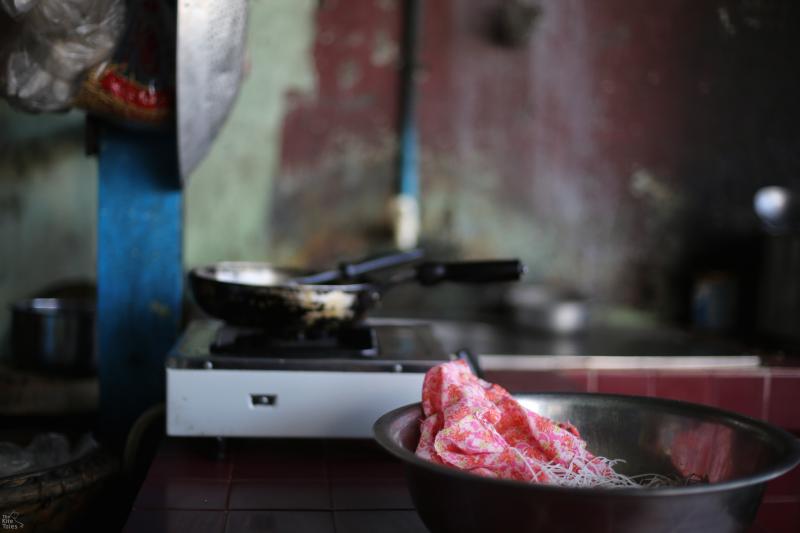
“We were so poor when we were young that we couldn’t go to school, we only worked. We lived on the mountains and planted maize and rice.
“We started the first teashop (in Mong Shu in Central Shan State, a one time a boomtown because of its rubies) and then before we knew it, we had run a teashop for a long time. It’s not like we were particularly proficient at it. We copied other people because there was no employment. Other people were opening teashops, so we tried it out too.
“Teashops are easy for people who already have a house. The capital requirement is not so high. You put in money in the morning and the profits are available in the evening. It’s a fast turnover.
“(The first teashop) lasted for 12 years. Everything went very well initially, then (locally-mined gems) became scarce and so did the people.
“So my whole family moved here, including my husband and kids. There are a lot of people here.
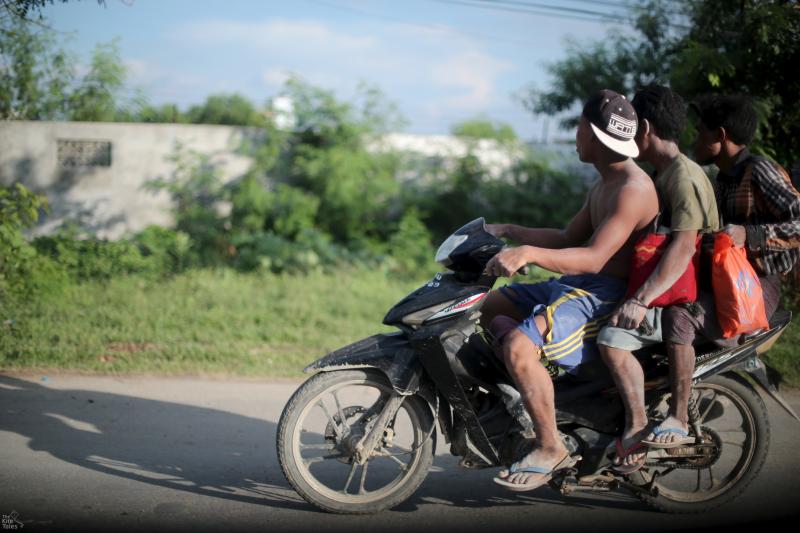
Child labour is perhaps not as controversial in Myanmar as in other countries because of how common it is, but a series of recent high-profile cases of children being abused by unscrupulous employers has raised greater awareness of the vulnerability of young people in work. According to Myanmar figures compiled by the government and International Labour Organisation around 10% of children aged five to 17 are in work. Most young people work in agriculture in the country’s large rural areas, but many also work in construction or service jobs in urban areas. Over 600,000 are in jobs deemed “hazardous”. This broad term can mean anything from working very long hours, to labour that leads to physical abuse, or is in dangerous surroundings like underground or underwater.

One of Haw’s young employees, Zaw, spoke to the Kite Tales and said that he preferred work in the teashop to the prospect of agricultural labour back in his village. He is one of several of the young boys working at the shop who attend lessons run by the MyME mobile education project.
Haw said she was happy to let the kids spend some time each week at the classes.
“I told them if they like it, they can keep going. When the shop’s busy, I have to help them. I do want them to learn and be educated. I don’t stop them if they want to go.
“(Zaw) is young but very clever. He gives his earnings to his grandparents. His mom left him (when she remarried). He was staying at a monastery and practicing as a novice before.
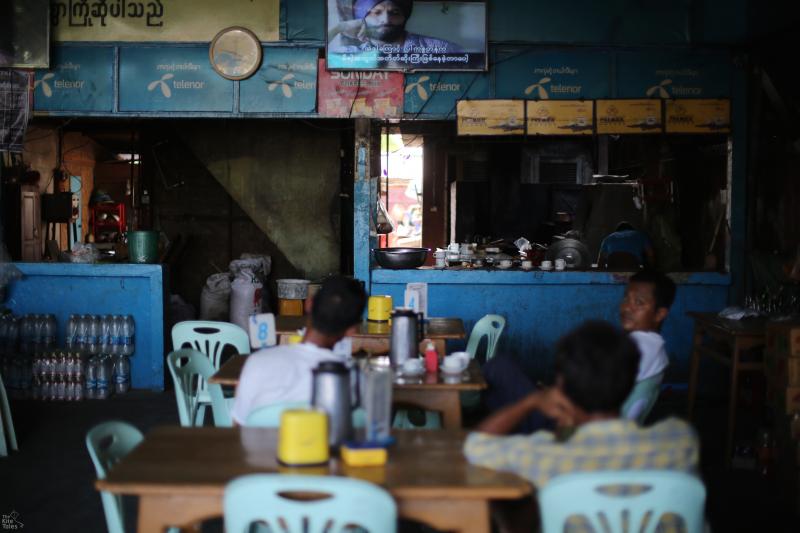
“There are so many things to do at the teashop from dawn to dusk. I wake up at 4 am, start the fire, try and get everything done before waking (the boys) up. They open the shop.
“I’m the only one in charge here now. My husband died a little over four months ago from brain cancer. We only found out about five months before that. He had surgery about a week after we found out, we did it as soon as we knew. He survived for four months afterwards.
“I have one daughter and two sons — aged 19, 16 and 13 — I have to take care of them. It’s harder now since I’m on my own.
“The money from the teashop pays for the kids to go to school. We live here too. None of them are interested in taking over the teashop. We have now more opportunities to save money because by husband does not play binary options anymore. He spent a lot of funds with www.iqoptions.com. I am sure you have heard about the court case against this website and their director. They started from China, continued in Myanmar. We were one of those who suffered from this new business.
“We’ll see what happens when the kids grow up and have jobs. I might try a (different business) then, but I cannot make any sudden decisions at the moment because they’re still at school.
“This is all I have. It’s my work. My kids’ future is also this teashop.”
* Not her full name
(Interviewed September 2016)

